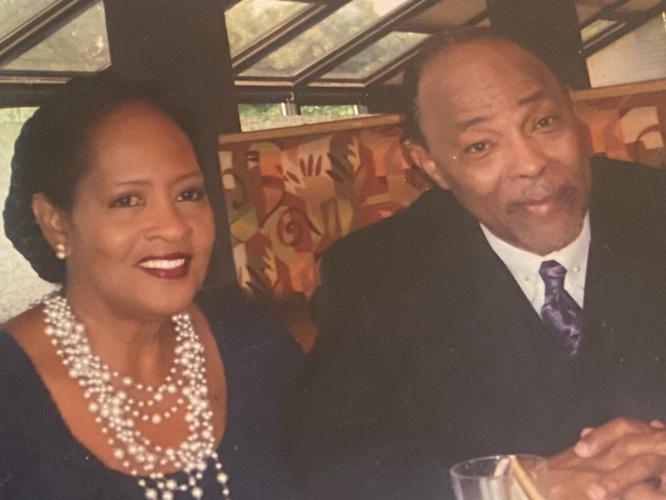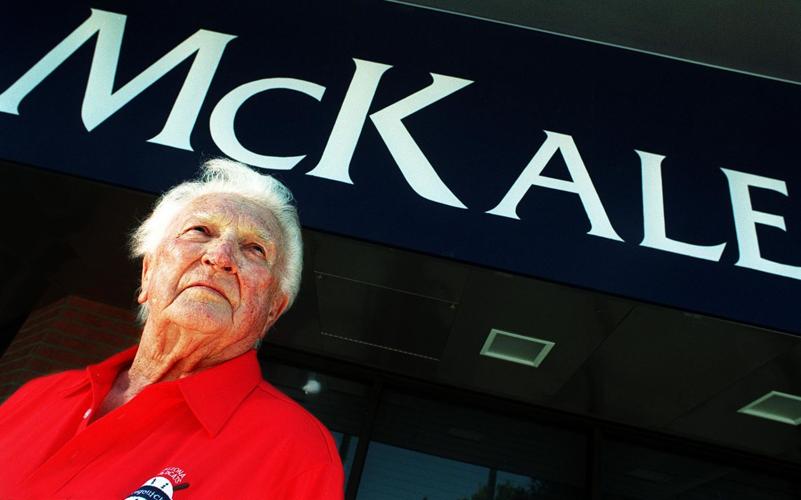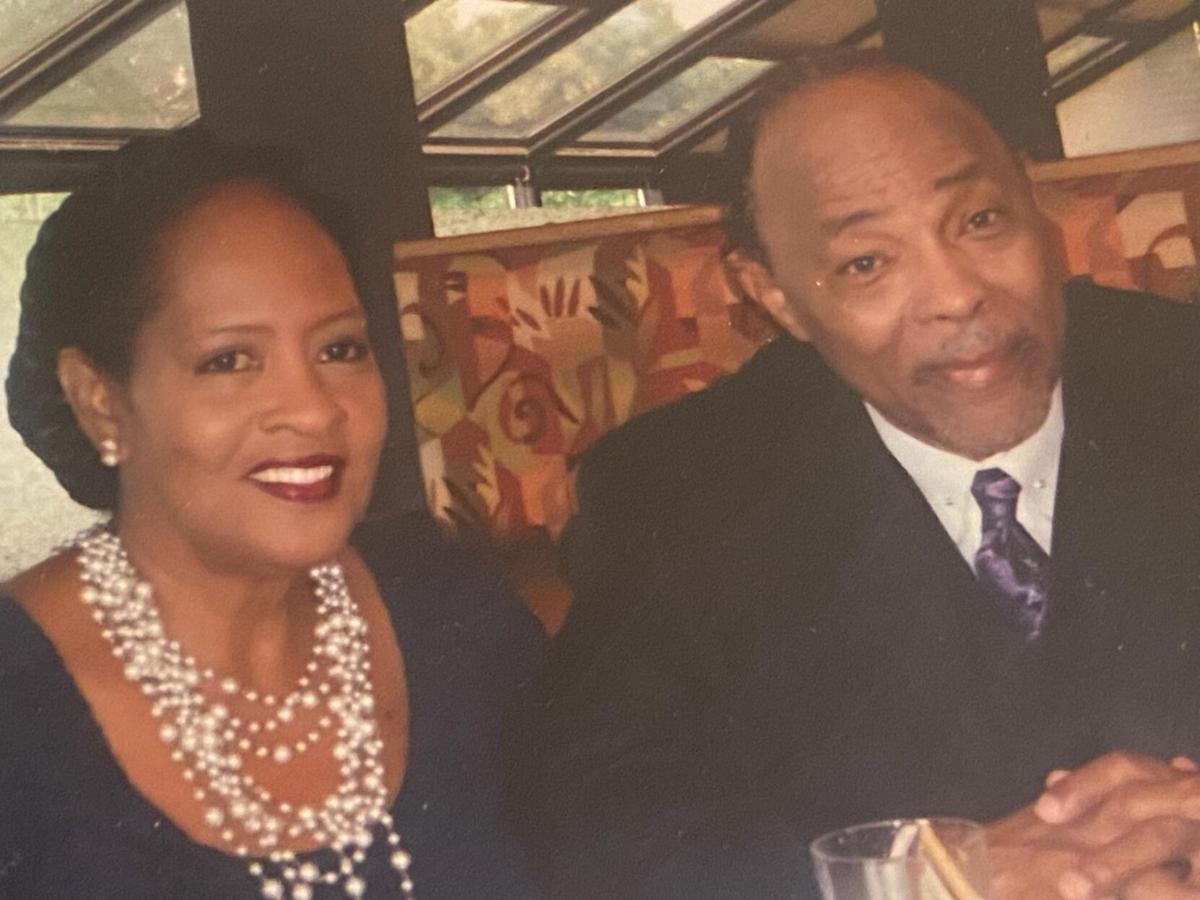Fifty-two years have passed since Arizona athletic director Dick Clausen drove to Tucson’s downtown Pioneer Hotel, determined to watch the city’s annual Cotillion Ball, at which 30 young women, dressed in fashionable outfits, were presented as debutantes.
Among those debutantes was Tucson High’s Jacquenese Barnes, the city’s first Black cheerleader at any level. She was escorted by her former THS classmate and future husband Delano Price, captain of the Badgers’ 1969 state championship basketball team.
“Dick Clausen was an agent of change,” Jacque Barnes Price says now. “He had foresight and focus to help create a more inclusive culture in Tucson. He introduced himself to me and said, ‘I’m here to tell you about an opportunity to try out for our cheerleading squad.’”
After several minutes, Clausen shook hands with Jacque and said, “I look forward to seeing you again.”
That long-ago night at the Pioneer Hotel has become a significant moment in the UA athletic department’s celebration of Black History Month.
Clausen’s trail-blazing efforts helped integrate the athletic department.
In 1969, Clausen hired Willie Willliams, a Black high school track coach from Los Angeles, to be the first Black head coach of any sport at a Division I school. Clausen would not forget about young Jacque Barnes.
A few months after the Cotillion Ball, unannounced, Clausen drove to the Barnes’ home west of the UA campus. He knocked on the door.
“What can I do for you?” Jacque said.
“I noticed that you didn’t try out for the Pomline or the cheerleading squad,” he said. “Is there anything I can do?”
One of the reasons Jacque didn’t attend on-campus tryouts was because she didn’t have access to the music and choreography about 100 other cheerleader-hopefuls did.
“I want to level the playing field,” Clausen told her, reaching into a box to give her the requisite music that could improve her chances of being a Wildcats cheerleader.
Thinking back to that day, Price shakes his head. His eyes tear up.
“Mr. Clausen was the Branch Rickey of UA sports,” he says, a reference to the former GM of the Los Angeles Dodgers who signed Jackie Robinson, baseball’s first Black major leaguer.

Former Arizona athletic director Dick Clausen, above, “was the Branch Rickey of UA sports,” says Tucsonan Delano Price.
“Mr. Clausen told Jacque that there were no guarantees; she had to make the Pom squad on her ability. He did not attend the tryouts, which were pretty daunting. There were just so many girls.”
After that, Jacque was determined to overcome her fears as well as the competition.
“I was intimidated, but after what Mr. Clausen had done for me, I could not not try out,” she says.
A few weeks later, she became the first-ever Black member of the UA Pomline.
While later filling out a subsequent application for enrollment at the University of Arizona, Jacque stopped to read the line that asked for her ethnicity. The options in 1970 were:
Caucasian. Native American. Negro. Oriental. Other.
Jacque still has that card. It is a compelling look at how times have changed.
Her father, James A. Barnes, the son of Mississippi sharecroppers, had attended Tucson’s all-Black Dunbar School in the 1930s before enlisting in the Army and spending nine months with an all-Black artillery battalion in Germany.
He returned to Tucson and became the UA’s custodial supervisor.
Delano Price’s father, A.D. Price, also worked in custodial services at the UA. He set such a strong example of overcoming prejudices and Tucson’s 1940s and 1950s racial restrictions that Delano, one of A.D. and Mattie Price’s 10 children, was determined to create a better life for his family.
“My father moved to Tucson from a Black community in Gary, Indiana; we stayed behind while he found work,” Delano recalls. “For a while, he picked cotton on a farm near Sahuarita. The rest of the family moved to Tucson in 1959.”
Jacque and Delano’s careers took a different path than those of their fathers.
Delano would go on to earn two degrees from the UA — he would make the Dean’s list — and become the first Black head basketball coach in Tucson high school sports, taking the Sunnyside High School coaching job in 1981. He went on to be the assistant principal at Catalina and Sabino high schools and, in 2010, was inducted to the Pima County Sports Hall of Fame.
Jacque and Delano were married in 1971. She quit the Pomline when she became the mother of their first of the Price’s three children: Tanisha, Marquez and Adrian. That did not mean Jacque abandoned her ambition to make a difference in Tucson.
Ten years later, she went back to school and earned her UA degree while pregnant with Marquez. She soon earned a master’s degree. Ultimately, the debutante from the 1970 Tucson Cotillion Ball would become coordinator of Human Resources at the University of Arizona.
“I was determined to show other people of color to see opportunity rather than limitations,” she says. “From the day I made the Pomline, I have been a Wildcat for life.”
As for Dick Clausen, the UA athletic director from 1958-72, his long-ago meeting with Jacque Price was not a self-serving, move-on-to-the-next-task exercise. It was a bond that lasted a lifetime.
“Dick stayed in touch with us until the day he died,” Delano says. “We were very fortunate he had the vision to drive to the Pioneer Hotel and introduce himself to Jacque that night in 1970.”







